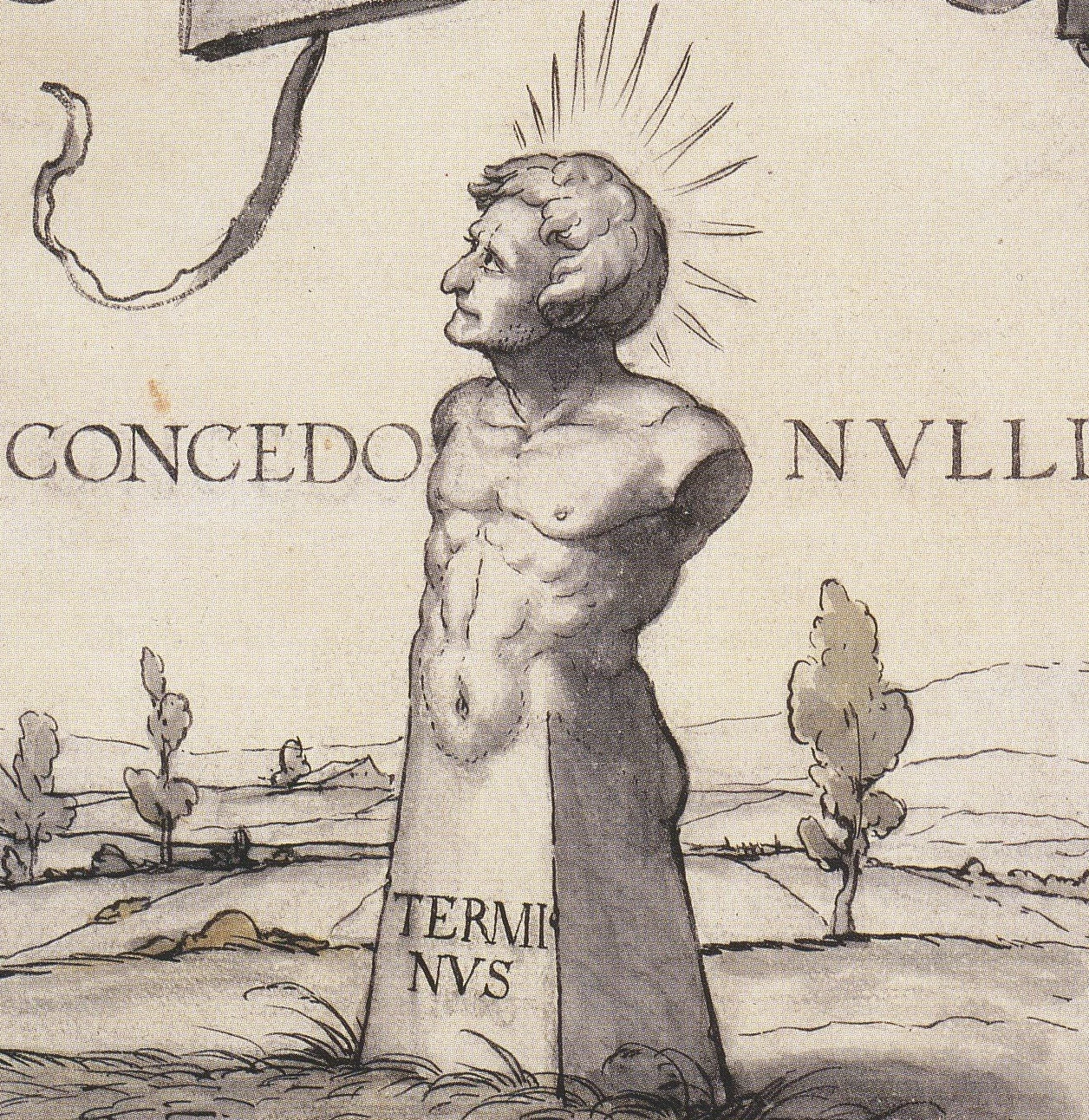
He was originally represented by a simple block of stone, which in later
times became surmounted by a head of this divinity. Numa Pompilius, the great benefactor of his people, anxious to inculcate respect for the rights of property, specially enjoined the erection of these blocks of stone, as a durable monument to mark the line dividing one property from another. He also caused altars to be raised to Terminus, and instituted his festival (the Terminalia), which was celebrated on the 23rd of February.
Upon one occasion, when Tarquin wished to remove the altars of several deities, in order to build a new temple, it is said that Terminus and Juventas alone objected to being displaced. This obstinate refusal on their part was interpreted as a good omen, signifying that the city of Rome would never lose her boundaries, and would remain ever young and vigorous.
Comments
Post a Comment